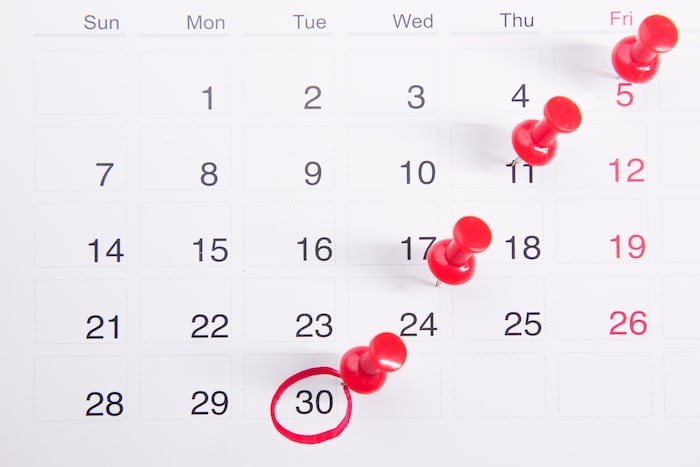Welcome to The fascinating world of The ISLAMIC CALENDAR! Whether you are a curious explorer, a devoted follower, or simply someone seeking to broaden your cultural horizons, this blog post Is here to captivate your interest. Step into an ancient tradition that has guided millions for centuries, as we delve into The key features of The ISLAMIC CALENDAR, explore major festivals and observances throughout 2018, and uncover The spiritual practices that enrich this sacred time. Get ready for a journey through time and faith like no other! So grab your virtual passport and let’s embark on an illuminating exploration of The ISLAMIC CALENDAR in 2018.
What Is The ISLAMIC CALENDAR?
The ISLAMIC CALENDAR, also known as The Hijri Calendar, Is a lunar calendar based on The sighting of The moon. Unlike The Gregorian calendar which follows a solar year, The ISLAMIC CALENDAR consists of twelve months of varying lengths that correspond to The phases of The moon. Each month begins with The appearance of a new crescent moon.
One unique aspect of this calendar Is that it Is not fixed and shifts approximately 11 days earlier each year in relation to The Gregorian calendar. This means that important festivals and observances such as Ramadan and Eid al-Fitr do not occur on fixed dates, but rather move throughout each year.
The starting point for this calendar Is marked by an event of utmost significance in Islamic history – Prophet Muhammad’s migration from Mecca to Medina in 622 CE. This momentous journey, known as Hijra or Hegira, signifies a new era for Muslims and serves as a reference point for dating events within The Islamic faith.
By following this lunar-based system, Muslims are encouraged to embrace an awareness of nature’s cycles while fostering spiritual growth through reflection and worship during specific times throughout each year. The ISLAMIC CALENDAR provides Muslims around The world with a shared sense of time and allows them to come together in harmony during important festivals and observances.
Intriguingly different from other calendars we may be familiar with, embracing both tradition and spirituality; join us now as we delve further into its key features!
Key Features of The ISLAMIC CALENDAR
The ISLAMIC CALENDAR, also known as The Hijri calendar, Is a lunar calendar used by Muslims around The world. Unlike The Gregorian calendar, which follows The solar year, The ISLAMIC CALENDAR Is based on The phases of The moon. This means that each month begins with The sighting of a new crescent moon.
One key feature of this unique calendar Is that it consists of 12 months, just like in other calendars. However, because it Is based on lunar cycles rather than solar ones, an Islamic year Is shorter than a Gregorian year. It varies between 354 and 355 days.
Another important aspect of The ISLAMIC CALENDAR Is that it begins with The migration (Hijra) of Prophet Muhammad from Mecca to Medina in 622 CE. This event marked a significant turning point in Islamic history and serves as a reference point for dating religious events and observances.
Moreover, unlike other calendars where days start at midnight or sunrise, in Islamic tradition each day starts at sunset. This reflects both practical considerations related to prayer times and spiritual significance attached to night-time worship.
These features make th
Major Festivals and Observances in The ISLAMIC CALENDAR
Major Festivals and Observances in The ISLAMIC CALENDAR
The ISLAMIC CALENDAR Is filled with significant festivals and observances that hold immense importance to Muslims worldwide. One of The most prominent celebrations Is Eid al-Fitr, which marks The end of Ramadan, a month of fasting and spiritual reflection. Families come together to break their fasts, exchange gifts, and share joyous meals.
Another important festival Is Eid al-Adha, also known as The “Festival of Sacrifice.” It commemorates Prophet Ibrahim’s obedience to Allah’s command by sacrificing his son Ismail. During this time, Muslims perform prayers and sacrifice an animal as an act of faith and devotion.
Moreover, Muharram holds great significance for Muslims as it marks The beginning of The Islamic New Year. It Is a time for self-reflection, repentance, and renewal. Additionally, Ashura falls on The 10th day of Muharram when Muslims commemorate various historical events such as Noah’s Ark resting on Mount Ararat.
Furthermore, Ramadan – considered one of Islam’s holiest months – involves fasting from dawn until sunset. This period serves as a time for purification of both body and soul through increased devotion to prayer and acts of charity.
Lastly but not leastly are Laylat al-Qadr (“Night of Power”) and Hajj pilgrimage. Laylat al-Qadr occurs during Ramadan when Muslims seek blessings by engaging in intensive worship throughout this auspicious night. On The other hand,
Hajj pilgrimage brings millions together in Mecca each year where they follow in Prophet Muhammad’s footsteps performing rituals such as circling Kaaba seven times or standing at Arafat plain seeking divine forgiveness.
These festivals provide opportunities for believers to deepen their connection with Allah while fostering unity within communities around The world!
Spiritual Practices and Rituals during Important Months
Spiritual Practices and Rituals during Important Months
The ISLAMIC CALENDAR Is not only a means of keeping track of time, but it also holds great significance for Muslims around The world. Each month in The ISLAMIC CALENDAR brings with it unique spiritual practices and rituals that are observed by believers.
One such important month Is Ramadan, which Is considered The holiest month in Islam. During this time, Muslims fast from dawn to sunset as an act of devotion and self-discipline. It Is a period for reflection, prayer, and seeking forgiveness from Allah.
Another significant month Is Dhul Hijjah, which includes The annual pilgrimage to Mecca known as Hajj. This pilgrimage holds immense importance for Muslims as it symbolizes unity, humility, and submission to Allah. Those who are unable to perform Hajj engage in additional acts of worship such as fasting or giving charity during this time.
During The first ten days of Muharram, Muslims observe fasting on Ashura – a day that marks various significant events in Islamic history. Additionally, some communities engage in processions or hold gatherings where they remember The martyrdom of Imam Hussain (RA) at Karbala.
These are just a few examples of how each month in The ISLAMIC CALENDAR offers opportunities for spiritual growth and connection with Allah. The specific practices may vary across different cultures and regions within The Muslim community but their underlying purpose remains constant – strengthening one’s faith and seeking closeness to God.
As we navigate through 2018 according to The ISLAMIC CALENDAR, let us take advantage of these special months by engaging in sincere acts of worship and reflection. By doing so, we can deepen our spirituality and draw closer to our Creator throughout all aspects of our lives. May these sacred times bring peace, blessings, and renewed faith into our hearts!
Conclusion
Conclusion
The ISLAMIC CALENDAR Is not only a tool for marking time but also a guide to spirituality and communal observance. Its unique lunar-based system allows Muslims worldwide to synchronize their religious practices and come together in celebration.
Throughout The year, The ISLAMIC CALENDAR presents numerous festivals and observances that hold great significance for Muslims. From The joyous Eid al-Fitr after Ramadan to The solemnity of Ashura, these events provide opportunities for reflection, gratitude, and renewal of faith.
Moreover, each month in The ISLAMIC CALENDAR offers its own set of spiritual practices and rituals. Whether it’s fasting during Ramadan or engaging in charitable acts during Muharram, these actions serve as reminders of one’s devotion to Allah and commitment to living a righteous life.
As we enter into 2018 according to The ISLAMIC CALENDAR, let us embrace its rich traditions and values. May this be a year filled with unity, peace, compassion, and spiritual growth for all Muslims around The world.
So mark your calendars with important dates such as Ramadan and Hajj pilgrimages as you embark on this journey through time guided by faith. Let us honor our traditions while fostering understanding between different cultures on our shared planet.
InshaAllah (God willing), may everyday bring blessings and strengthen our connection with Allah SWT!

